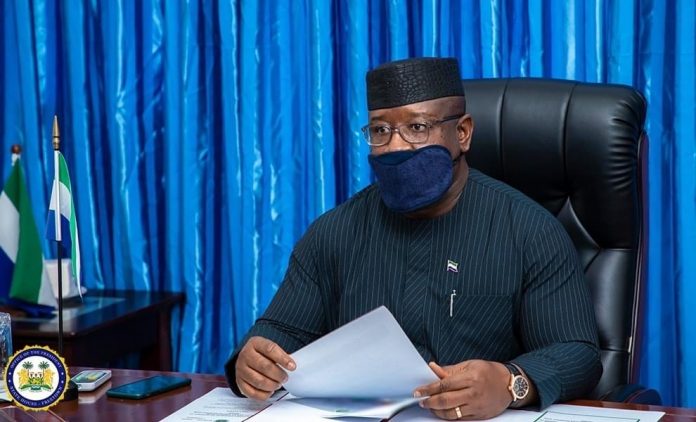By Amin Kef Sesay
The Truth and Reconciliation Commission (TRC), established in 2002 urged the Government of Sierra Leone to give “serious consideration” to the creation of a “new constitution”, in order to contribute to human rights and democracy in the country.
All the political parties agreed that the 1991 Constitution does not reflect the modern values of the country and requires amendment in order to facilitate the continued development of a democratic and stable country.
As such, the mandate of the CRC which was launched by the former President Koroma was to review the 1991 Constitution of Sierra Leone and the Peter Tucker’s Constitutional Commission Report (PTCR) submitted to the Government in January 2008 as a working document.
The CRC took particular note of PTCR, the TRC recommendations, position papers submitted by different stakeholders and recommendations from the public during the nationwide consultation exercise.
The Chapter on State Policy defines the overarching relationship between the State of the Republic of Sierra Leone and its citizens and institutions. It outlines the State’s goal and aspirations towards securing basic rights and development for its people.
In the 1991 Constitution of Sierra Leone none of these provisions are justiciable which means if there was a breach of these undertakings and promises in the Constitution they are not enforceable by the courts.
During the Consultation process there had been many calls for the provisions contained within Chapter II to be made justiciable. This was a major consideration for the deliberations of the CRC.
Other key areas recommended for inclusion were devolution of power, integrity, transparency, accountability and sustainable development as an additional National Value.
In addition, proposals were made to remove restrictions on provisions relating to health, safety, welfare, medical facilities and educational opportunities. So phrases like “having due regard to the resources of the State and “as and where practicable” were deleted.
The CRC also accepted the imperative recommendation by the TRC which had been reiterated by the PTCR to add “human dignity” into the National Values.
The CRC suggests strengthening the provision relating to discrimination by changing “discourage” to “prohibit” discrimination under Economic Objectives.
The CRC reviewed the provisions of Chapter III, The Recognition and Protection of Fundamental Human Rights and Freedoms of the Individual of 1991 Constitution.
CRC took particular note of the TRC recommendations, those contained in the PTCR25 and especially the submissions and recommendations received during the nation-wide public consultation exercise.
All human rights are fundamental – life, liberty, security of person, the enjoyment of property, the protection of law, the protection of environment, education, health, dignity and shelter as well as a right to a public apology as well as compensation for unlawful detention. Numerous position papers reiterated the call by HRCSL for an abolition of the death penalty.
“From a Political to a Developmental Constitution” as is with Ghana, the CRC presented the idea of National Development Planning Commission to the people of Sierra Leone and all relevant national stakeholders to consider the establishment of a constitutionally guaranteed institution to specifically address Sierra Leone’s long term development challenges.
Key among the recommendations made was that national development is not centered on sectional political party manifestos; manifestos must rather be aligned to the Plan.
The Plan CRC recommended should be binding on all successive governments for the following reasons. This will ensure that projects initiated under a previous government are not abandoned where there is a change of government. The CRC recommended that the National Development Planning Commission should be enshrined within the Constitution.




